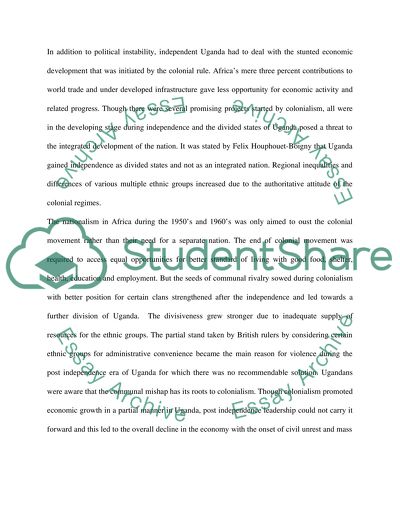Cite this document
(The Impact of Ugandas Colonial Past on Its Post-Independence Coursework, n.d.)
The Impact of Ugandas Colonial Past on Its Post-Independence Coursework. Retrieved from https://studentshare.org/history/1551003-uganda-the-impact-of-its-colonial-past-on-its-post-independence-experience
The Impact of Ugandas Colonial Past on Its Post-Independence Coursework. Retrieved from https://studentshare.org/history/1551003-uganda-the-impact-of-its-colonial-past-on-its-post-independence-experience
(The Impact of Ugandas Colonial Past on Its Post-Independence Coursework)
The Impact of Ugandas Colonial Past on Its Post-Independence Coursework. https://studentshare.org/history/1551003-uganda-the-impact-of-its-colonial-past-on-its-post-independence-experience.
The Impact of Ugandas Colonial Past on Its Post-Independence Coursework. https://studentshare.org/history/1551003-uganda-the-impact-of-its-colonial-past-on-its-post-independence-experience.
“The Impact of Ugandas Colonial Past on Its Post-Independence Coursework”, n.d. https://studentshare.org/history/1551003-uganda-the-impact-of-its-colonial-past-on-its-post-independence-experience.


